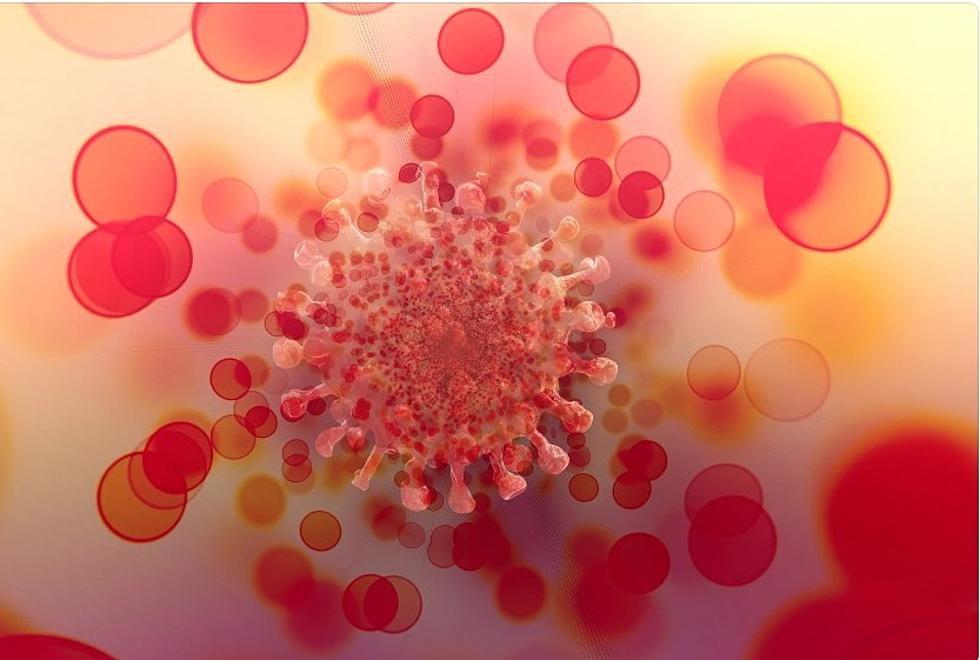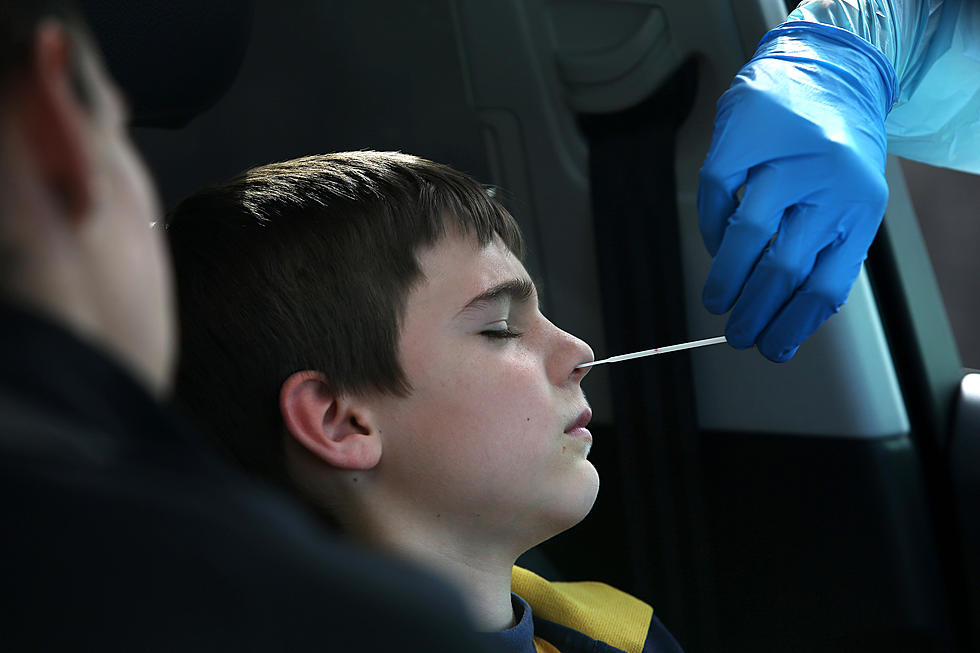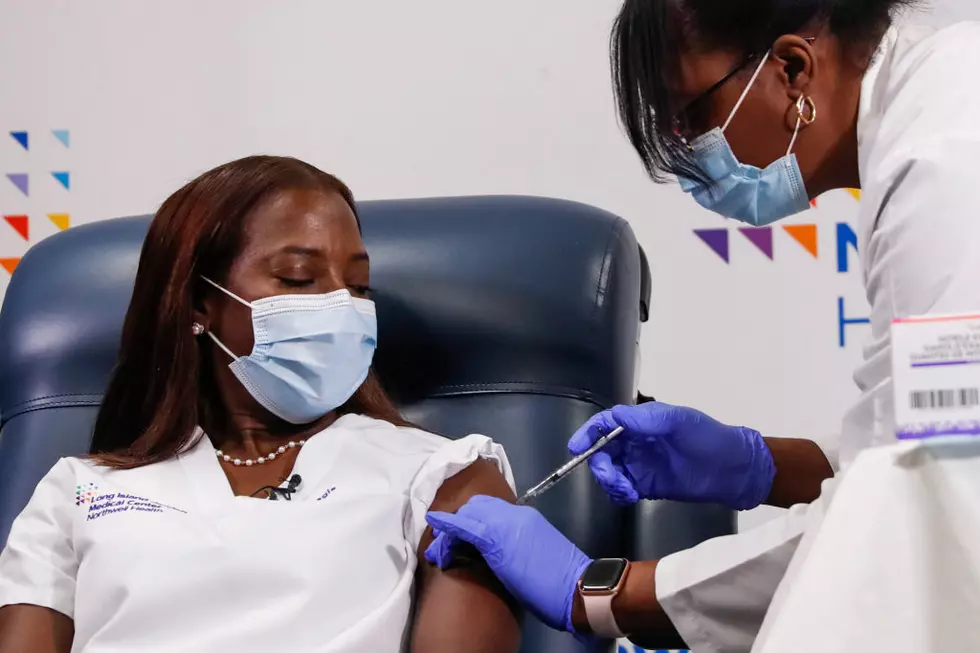
New Rules New Yorkers Must Follow at Personal Care Businesses
Personal care businesses and services, including tattoo and piercing facilities, appearance enhancement practitioners, massage therapy, spas, cosmetology, nail specialty, UV and non-UV tanning, or waxing can reopen in Phase 3.

Below are guidelines for these businesses according to the New York State Forward plan.
Physical Distancing
- Limit the workforce and customer presence to no more than 50% of the maximum occupancy, inclusive of customers, who must maintain 6 ft. of separation from others, except during the service, and, in all cases, only be permitted entry if wearing an acceptable face covering; provided that the customer is over age 2 and medically able to tolerate one.
- Ensure 6 ft. distance between individuals at all times, unless safety or the core activity requires a shorter distance (e.g. performing a piercing/tattoo, providing a massage, performing a manicure/pedicure). Employees must wear face coverings any time they interact with customers (e.g. performing a service, ringing up a purchase) and any time they come within 6 ft. of another person.
- Ensure that customer seating allows customers to maintain a 6 ft. distance from all others except for the employee providing service (e.g. tattoo and piercing workstations, massage tables, or salon workstations must be 6 ft. apart from each other), unless a physical barrier is in place in accordance with OSHA guidelines.
- Ensure that employees at appointment desks/cash registers maintain 6 ft. of distance from others, unless there is a physical barrier (e.g. plexiglass) between them, or the employee is wearing a face covering; however, even with a barrier, employees must wear a face covering any time they interact with a customer.
- Close waiting rooms. Put in place practices for adequate social distancing in small areas, such as restrooms and breakrooms. Establish designated areas for pickups and deliveries, limiting contact to the extent possible.
Workplace Activity
- Personal care services that require customers to remove face coverings (e.g. lip/nose piercings, face massage, facials, lip/nose waxing) are prohibited.
- Tattoo and piercing facilities must ensure that:
- Staff remove needles from sealed packages before every customer procedure. Any stencils or razors must also be clean and unused, and discarded immediately after use.
- Standard DOH, OSHA & CDC guidelines for health and safety are followed.
- Salons offering services including nail specialty, and waxing must ensure that:
- Manicure and pedicure baths and bowls are appropriately disinfected between each use. They must be thoroughly cleaned and disinfected with EPA-approved solution.
- Hand/foot drying tables are appropriately cleaned and disinfected after each customer.
- All wax containers are replaced or cleaned and disinfected between each customer, and no double dipping of applicators.
- Each new customer receives all new or cleaned and disinfected implements such as towels, finger bowls, spatulas.
- Facilities offering massage therapy and spa services must:
- Provide accommodations for clean and disinfected face coverings during massage in prone position (e.g. cotton pillowcase draped in face cradle) or avoid such positions altogether. Employees may perform massages on customers in prone positions if the employee is equipped with both a face covering and face shield or eye protection. Ensure that customers don face covering when switching from prone to side or supine position.
- Ensure that all linens are changed between clients and laundered appropriately and that they are stored in appropriate containers between use.
- Close saunas, steam rooms, or any other services that take place in enclosed spaces where it is inherently difficult to maintain social distancing and/or unsafe to wear an appropriate face covering.
- Clean and disinfect all tanning beds and booths between each use.
- Abide by any DOH guidance governing dining/beverage service areas.
Protective Equipment
Customers must only be permitted entry into the facility if they wear an acceptable face covering, provided that the customer is over the age of 2 and able to medically tolerate such a covering. Provide employees with an acceptable face covering and protective equipment at no-cost to the employee and have an adequate supply of coverings in case of need for replacement. Employees must wear a face covering that completely covers the nose and mouth and a face shield or safety goggles when providing service directly to customers. Acceptable face coverings include but are not limited to cloth (e.g. homemade sewn, quick cut, bandana), surgical masks, N95 respirators, and face shields. Employees must wear face coverings any time they interact with customers, even if they are 6 ft. or more apart. Tattoo and piercing facilities must ensure that all employees wear a surgical mask that completely covers the nose and mouth, eye protection (goggles and/or face shield), and disposable gloves when providing service directly to/on customers. Face coverings must be cleaned and disinfected or replaced after use or when damaged or soiled, may not be shared, and should be properly stored or discarded. Limit the sharing of objects (e.g. tattoo machines, oils, lubricants, brushes, nail files, clippers) and discourage touching of shared surfaces; or, require workers to wear gloves (trade-appropriate or medical) when in contact with such objects/surfaces; or, require workers to perform hand hygiene before and after contact. Train staff on appropriate PPE donning and doffing procedures. Refer to CDC guidance.
Hygiene and Cleaning
- Adhere to hygiene, cleaning, and disinfection requirements from the Centers for Disease Control and Prevention (CDC) and Department of Health (DOH) and maintain logs on site that document date, time, and scope of cleaning and disinfection.
- Provide and maintain hand hygiene stations, including handwashing with soap, water, and paper towels, as well as alcohol-based hand sanitizer with 60% or more alcohol for areas where handwashing is not feasible.
- Place hand sanitizer throughout the personal care facility for use by employees and customers.
- Ensure that employees wash hands for 20 seconds with soap and water or use an alcohol-based hand sanitizer before and after providing services to each customer.
- Provide and encourage employees to use cleaning and disinfection supplies before and after use of shared and frequently touched surfaces, followed by hand hygiene.
- Conduct regular cleaning and disinfection at least after every shift, daily, or more frequently as needed, and more frequent cleaning /disinfection of shared objects and high risk areas.
- Ensure that workstations (e.g. chairs, headrests, work surfaces, massage tables) and reusable tools are cleaned and disinfected between each customer.
- Require that all non-disposable implements (e.g. piercing guns, forceps/clamps, metal implements) are appropriately cleaned and disinfected after each use.
- For cleaning and disinfection, refer to Department of Environmental Conservation (DEC) products identified by the Environmental Protection Agency (EPA) as effective against COVID-19. Tanning facilities may refer to DOH guidelines when choosing appropriate disinfectants.
- Leave time between appointments for full workstation cleaning and disinfection.
- Provide for the cleaning and disinfection of exposed areas in the event of a positive case of COVID-19, including all heavy transit areas and high-touch surfaces.
- Follow CDC guidelines on cleaning your facility after a suspected or confirmed case.
Communication
- Affirm you have reviewed and understand the state-issued industry guidelines, and that you will implement them.
- Post signage inside and outside of the facility to remind personnel and customers to adhere to proper hygiene, social distancing rules, appropriate use of PPE, and cleaning and disinfecting protocols.
- Conspicuously post completed safety plans on site
Screening
- Employees shall be tested for COVID-19 through a diagnostic test every 14 days, so longa s the region in which the personal care workplace is located remains in Phase III of the State’s reopening.
- Implement mandatory health screening assessment (e.g. questionnaire, temperature check) for employees and, where practicable, vendors, but such screenings shall not be mandated for customers and delivery personnel.
- At a minimum, screening must determine whether the worker or vendor has had: (1) COVID-19 symptoms in past 14 days, (2) positive COVID-19 test in past 14 days, and/or (3) close contact with confirmed or suspected COVID-19 case in past 14 days. Assessment responses must be reviewed every day and such review must be documented.
- Designate a site safety monitor whose responsibilities include continuous compliance with all aspects of the site safety plan
New Rules For New York Hair Salons Tops This Weeks Hudson Valley News
More From Hudson Valley Post









